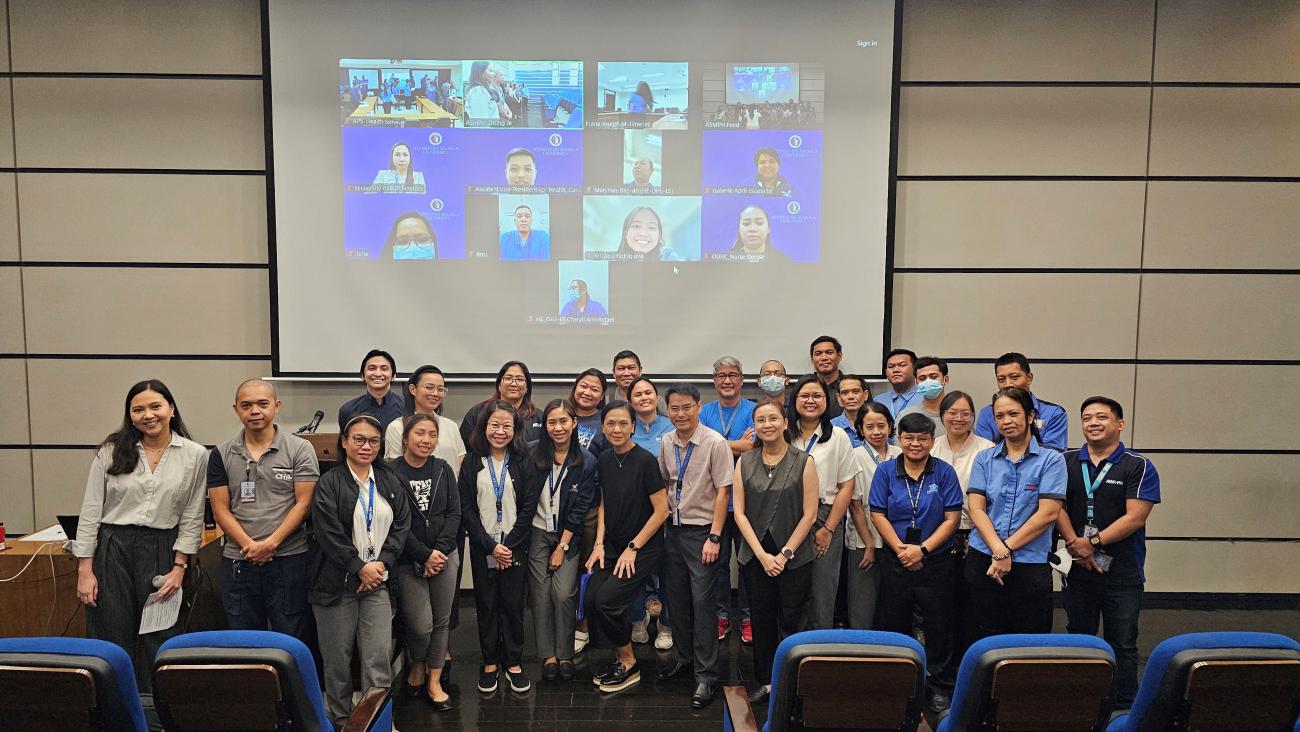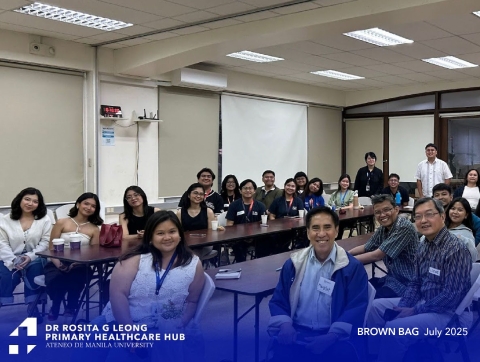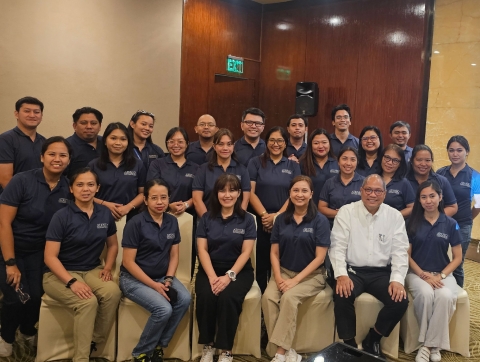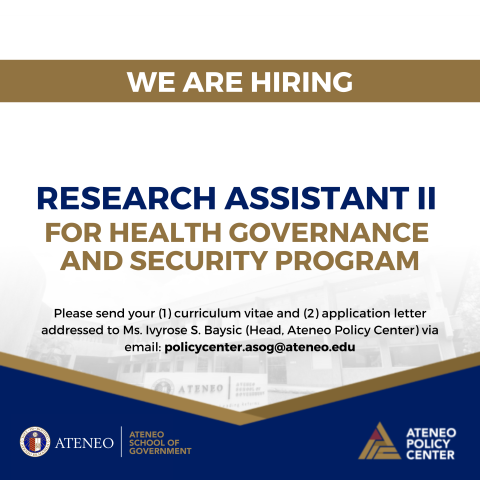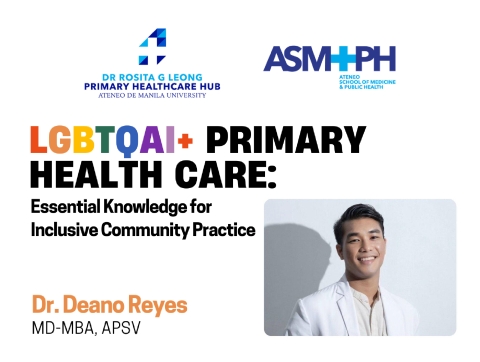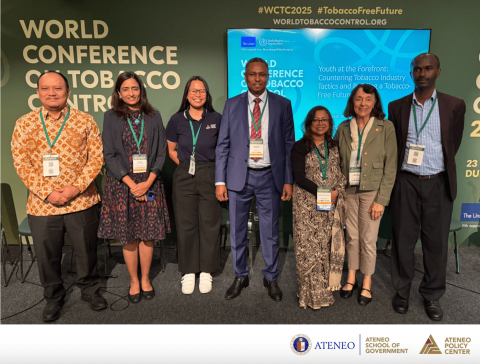Ateneo holds 2nd occupational medicine week, highlights role of digital technology in workplace health
11 Apr 2025
In observance of Presidential Proclamation No. 1316 declaring the third week of March as Occupational Medicine Week, Ateneo de Manila University, through the Office of the Assistant Vice President for Health, Care and Well-Being, in cooperation with the Office of the University Physician and Clinic, ASMPH and APS Health Services, held its second Occupational Medicine Week from 17 to 21 March 2025.
Themed “Digital Technology in Occupational Medicine Practice,” this year’s commemoration was aligned with the national celebration and underscored the growing importance of digital solutions in promoting employee health and productivity in the workplace.
The week-long event featured a hybrid lecture series—accessible both in-person and online—delivered by physicians from various fields of expertise. The discussions centered on the identification and management of chronic conditions such as hypertension and diabetes in occupational settings, including preventive strategies, appropriate workplace accommodations, and the promotion of a culture of health and wellness within institutions.
The first speaker, Dr Maria Christina Kristin S Reyes, gave a talk titled “Abot-kayang Pagkain Pang-iwas sa Altapresyon: Tamang Nutrisyon, Planadong Solusyon,” which focused on practical and affordable dietary approaches to prevent hypertension. This was followed by a lecture from Dr Ronald Chua entitled “Facts and Myths on Diabetes,” where he debunked common misconceptions and emphasized evidence-based practices in diabetes care.
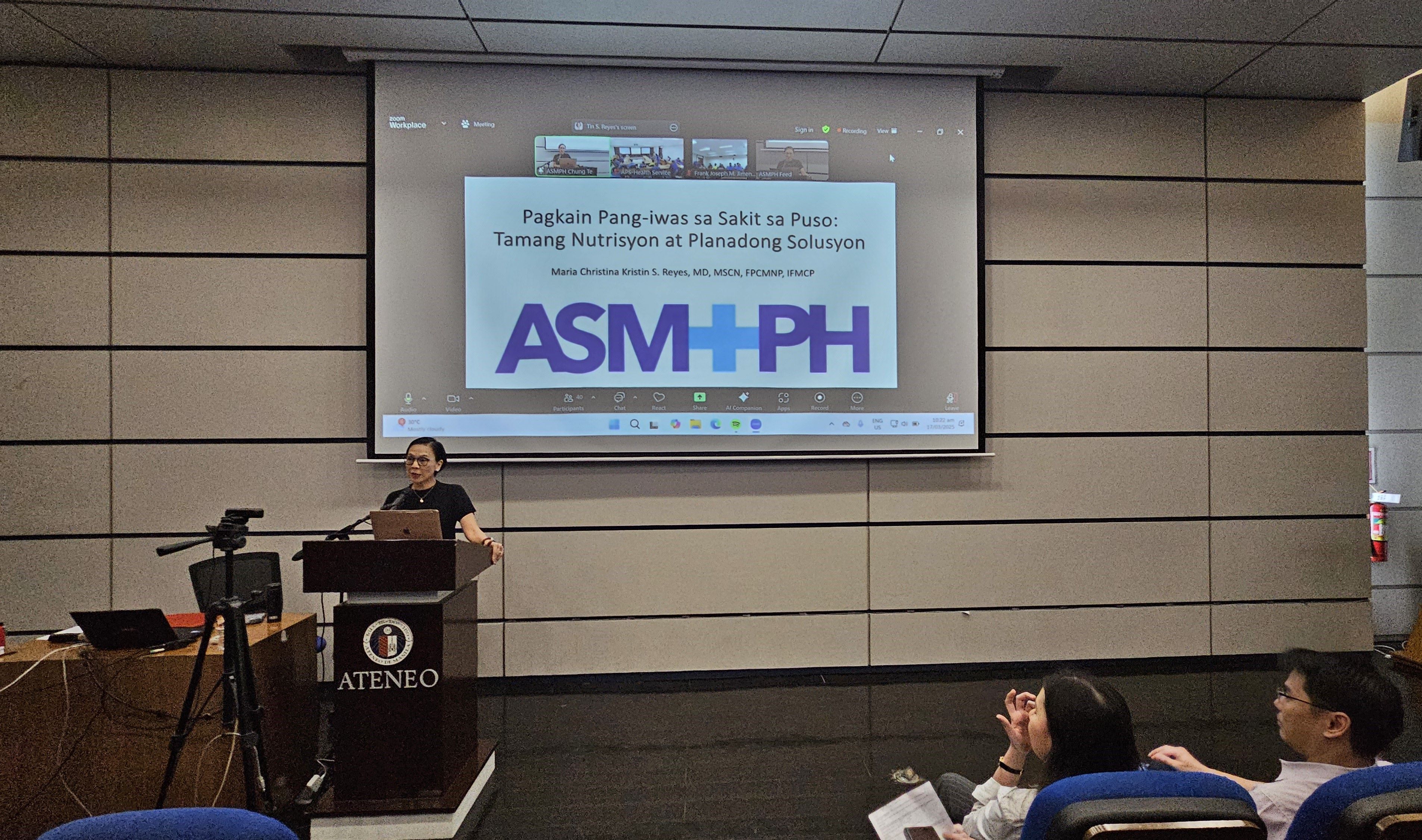
As part of the week’s activities, the Health Services Office (HSO) also conducted free health screenings at the Ateneo School of Medicine and Public Health (ASMPH) campus. Services offered included vital signs monitoring (blood pressure, heart rate, respiratory rate, and temperature), capillary blood glucose testing, urine strip analysis, body mass index (BMI) calculation, and cardiovascular risk assessments. Participants were given an opportunity to consult with physicians on-site for further evaluation and recommendations based on their screening results.
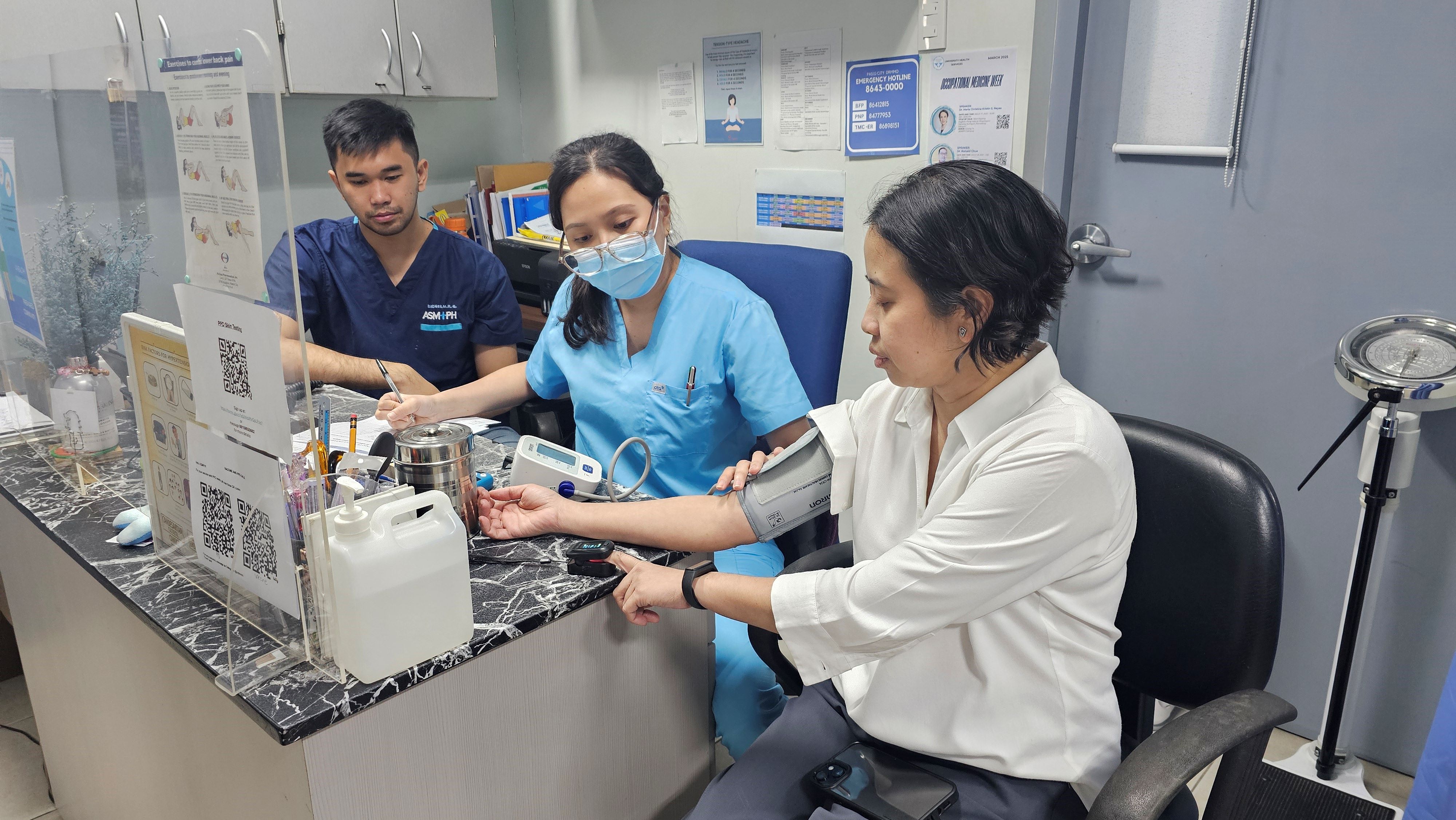
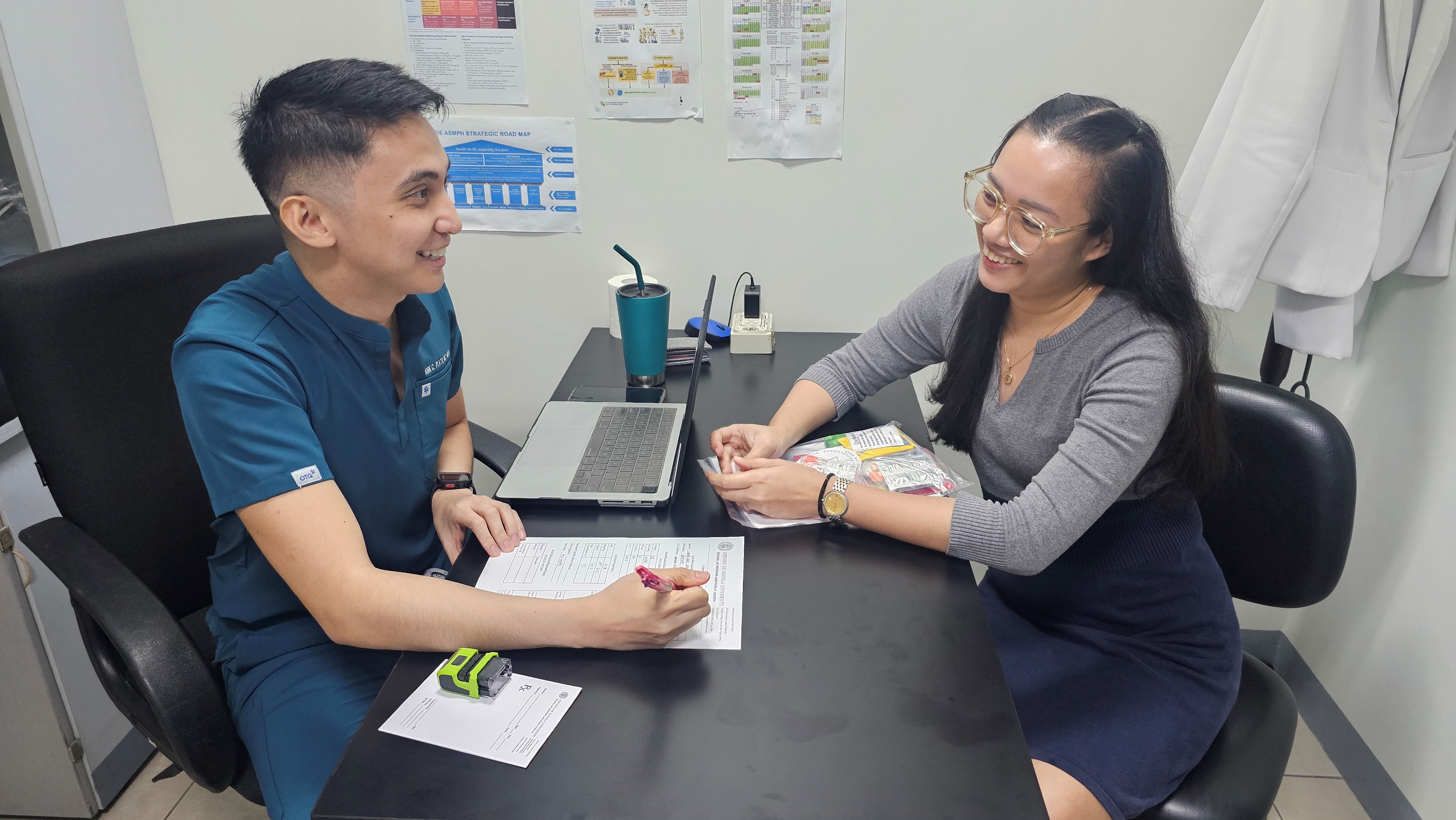
The initiative highlighted the role of occupational medicine in preventing, diagnosing, and managing work-related health conditions. Chronic diseases such as hypertension and diabetes remain major contributors to employee absenteeism and reduced productivity, making early detection and integrated management in the workplace a critical priority.
The University extends its gratitude to the Health, Care and Well-Being Subcluster and all partner offices for organizing the event and for their dedication to advancing occupational health within the Ateneo community.

